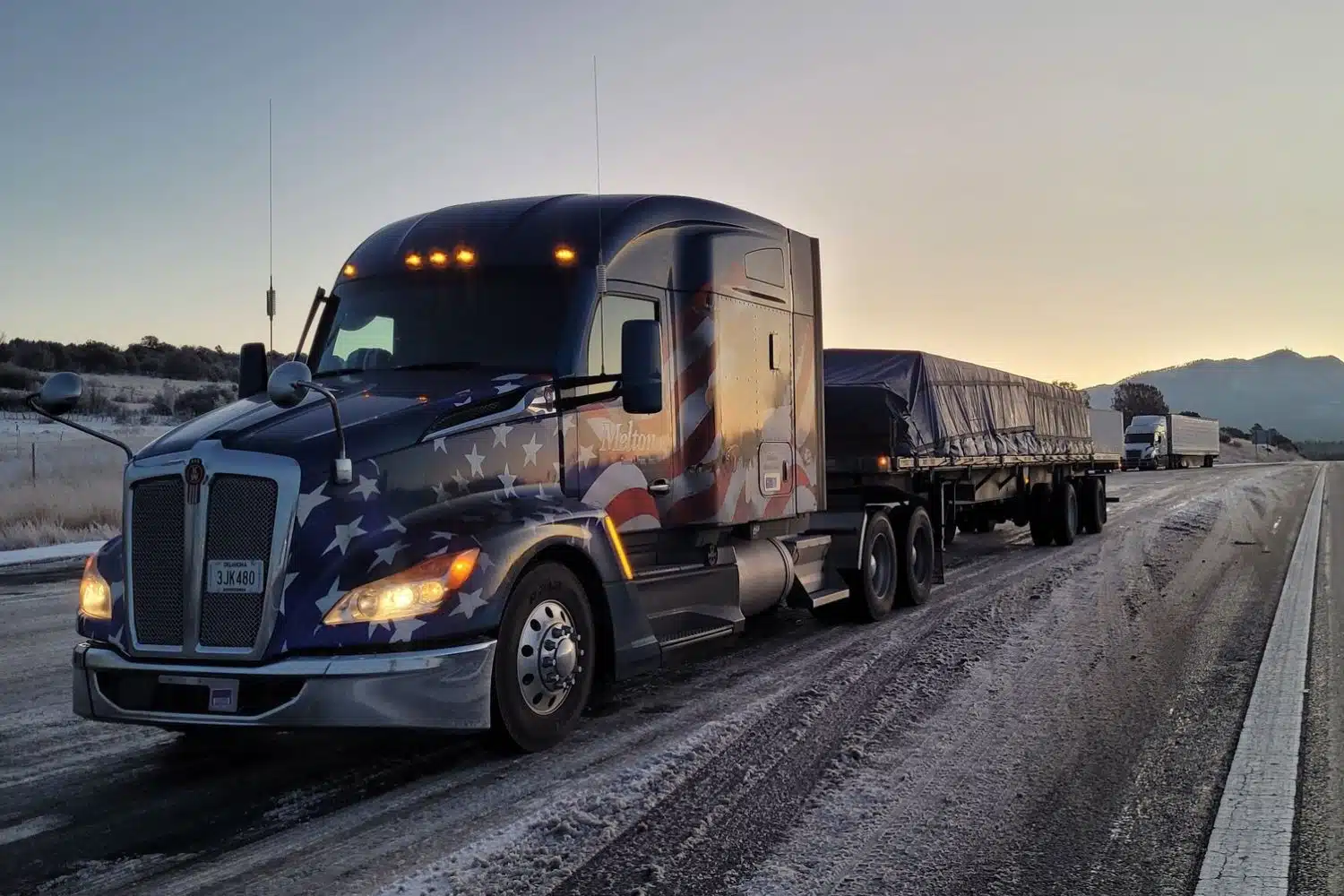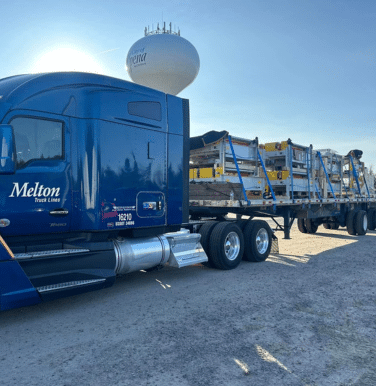
Flatbed Trucking for Government Freight
Government agencies and military bases often require specialized logistics solutions to move oversized, high-value, or sensitive cargo both safely and efficiently. Flatbed trucking plays a crucial role in meeting these needs, offering a secure and adaptable method for transporting government freight. When it comes to government freight, there are critical factors that need to be considered in order to provide smooth transportation: precision, security, and reliability.
What is Government Freight?
Government freight refers to shipments arranged by federal, state, or local government agencies, including the Department of Defense (DoD), FEMA, and other public institutions. This freight often requires strict compliance with regulations, heightened security, and specialized handling due to the nature of the cargo.
What Types of Cargo are Considered Government Freight?
Government freight encompasses a wide range of cargo, including:
- Military Equipment: Tanks, Humvees, aircraft parts, and other weapons systems that may be used by multiple branches of the U.S. Military.
- Emergency Response Equipment: Generators, mobile hospitals, disaster relief supplies used by organizations like FEMA, and rescue vehicles.
- Construction and Infrastructure Materials: Steel beams, concrete barriers, and prefabricated structures for public works projects such as bridges, dams, and road construction.

What are the Key Requirements for Shipping Government Freight?
Transporting government freight requires adherence to a strict set of regulations and chain-of-custody procedures. Key requirements include:
- Security Clearances & Compliance: Carriers must comply with Transportation Security Administration (TSA) and Department of Defense (DoD) regulations which can range from specific driver-centered clearances to terminal-level security requirements.
- Proper Licensing and Certification: Trucking companies must possess government contracts, specific permits, and experience handling sensitive freight. They must also maintain detailed tracking of documentation such as Military Shipping Labels (MSLs), Bills of Lading (BOLs), Certificates of Origin, and potentially HAZMAT (Hazardous Materials) documents.
- On-Time Delivery and Reliability: Government freight often follows strict deadlines, especially in military or disaster relief operations.
Why is Flatbed Trucking a Good Choice for Government Freight?
Flatbed trucking offers several advantages for government freight transportation:
- Versatility for Oversized Cargo: Many government shipments involve heavy, oversized, or uniquely shaped equipment that cannot fit into enclosed trailers. Flatbeds provide the open-deck space needed for these kinds of loads.
- Ease of Loading and Unloading: Unlike enclosed trailers, flatbeds allow loading and unloading from all sides, making them ideal for heavy machinery and vehicles.
- Military and Government-Approved Carriers: Many flatbed trucking companies have the necessary security clearances and expertise to transport sensitive loads.
- Expedited Emergency Response Capabilities: Flatbed carriers can aid in rapidly deploying equipment for disaster relief, defense operations, or urgent infrastructure projects- especially in developing or locations that may hard to access with traditional box-trailers.
Government freight requires a transportation partner that understands the complexities of secure, regulated, and time-sensitive shipments. Flatbed trucking offers a reliable solution for moving oversized, heavy-duty, and high-security cargo.
Melton Truck Lines is a trusted partner in the transportation industry, offering expert flatbed trucking solutions for government freight. Melton has a proven track record in handling government and military freight, ensuring compliance with all federal regulations and security requirements. Our modern fleet includes standard flatbeds, step decks, and specialized trailers to accommodate a multitude of cargo needs. Learn more about the services we offer here.
